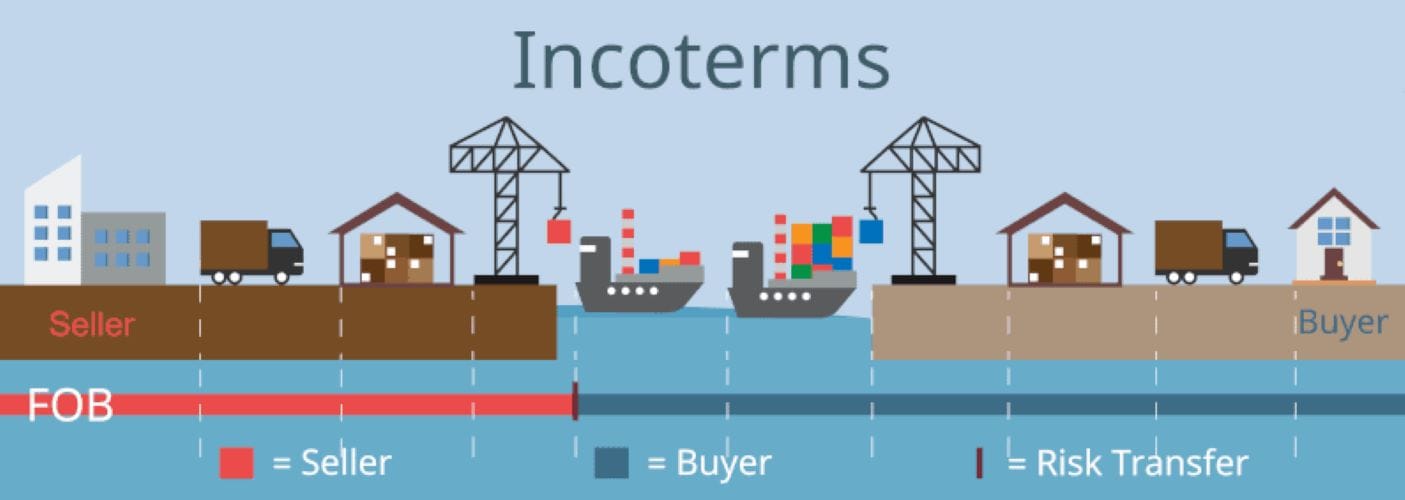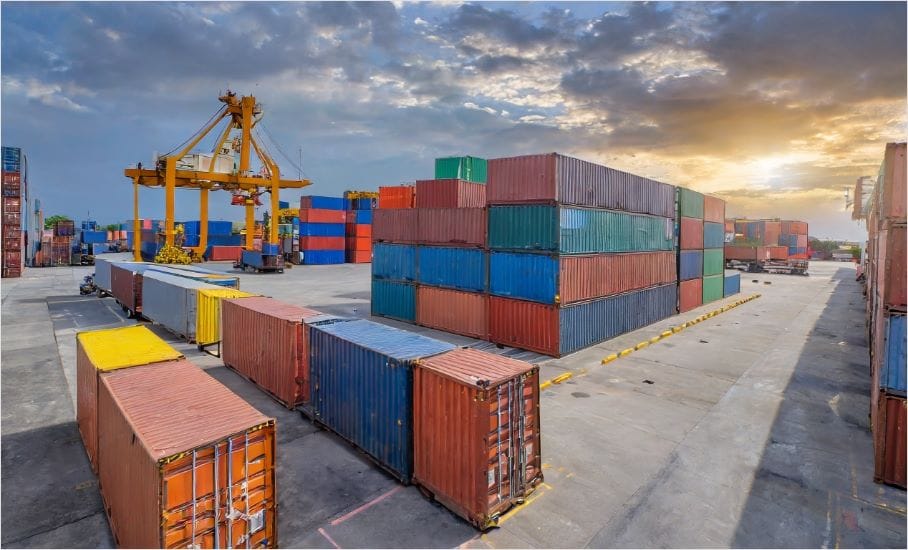FOB (Free On Board) is a commonly used term in international trade, mainly involving the delivery of goods and the determination of the risk transfer point. According to the different locations of FOB terms – FOB shipping point and FOB destination, this article will introduce this in detail.
Learn more: The 11 Common International Trade Terms

Definition of FOB Shipping Point
FOB shipping point, also known as the port of departure (POL), refers to the port where the seller loads the goods onto the ship designated by the buyer in accordance with the contract. The seller has fulfilled its delivery obligations, and the risks and costs are transferred from the seller to the buyer.
Features of FOB Shipping Point
- Risk transfer point: Under the FOB shipping point clause, the risk is transferred to the buyer when the goods are loaded on board. After the goods are loaded on board, the seller is no longer responsible for any loss or damage that may occur during transportation, and the buyer bears all risks.
- Cost bearing: The seller’s expenses are mainly limited to handing over the goods to the transport company and handling export customs clearance procedures. The buyer bears all costs of transportation, insurance and after the goods arrive at the destination from the time the goods are loaded on board.
- Applicable scenarios: Applicable to cross-border transportation such as sea transportation and inland waterway transportation, especially when the buyer is able to arrange and manage transportation on his own. The seller is only responsible for delivering the goods to the ship designated by the buyer.
- Control: The buyer usually has more control over the transportation process and can choose the shipping company, insurance and transportation method, which provides a certain degree of flexibility for the buyer.
- Less liability of the seller: The seller’s liability ends when the goods are loaded on the ship, and the seller does not need to deal with the risks and costs during the transportation process. This helps the seller to complete the transaction quickly and reduce capital occupation.
- Applicable to: It is mostly used for experienced buyers who can handle transportation and logistics on their own.
Definition of FOB Destination
FOB destination, also known as the port of destination (POD), is the port where the buyer is responsible for receiving the goods after the goods depart from the port of shipment. At this point, the buyer needs to be responsible for chartering and booking a ship, and bear all risks and costs after the goods are loaded on the ship, including ocean freight, unloading fees at the port of destination, import customs clearance fees and subsequent transportation fees.
Characteristics of FOB Destination
- Risk transfer point: Under the FOB destination terms, the seller completes the transfer of responsibility when the goods are delivered to the destination and handed over to the buyer.
- Cost bearing: The seller is responsible for paying all transportation costs from the port of shipment to the destination, including freight, insurance, destination customs clearance fees, etc. The buyer only starts to bear the costs after the goods arrive at the destination.
- Applicable scenarios: Applicable to situations where short-distance transportation is required or the buyer does not have the ability to manage transportation.
- Control: Under the FOB destination terms, the seller is responsible for the entire transportation process until the goods arrive at the buyer’s designated location. The buyer has less control over the transportation process and mainly focuses on receiving and clearing customs at the destination.
- Less buyer responsibility: The buyer does not need to worry about problems that may occur during transportation (such as delays and damage), which are borne by the seller. This reduces the buyer’s risk and burden in transportation.
- Applicable to: Applicable to buyers who are not familiar with logistics management and buyers who want to simplify the trade process.
The Difference Between FOB Shipping Point and FOB Destination
Division of responsibilities
At the FOB shipping point, the seller is responsible for loading the goods on board and bears all risks before loading; at the FOB destination, the buyer is responsible for receiving the goods and bears all risks after loading.
Cost bearing
At the FOB shipping point, the seller bears domestic transportation, loading fees, customs clearance fees, etc.; while at the FOB destination, the buyer bears ocean freight, unloading fees at the destination port, import customs clearance fees, etc.
Risk transfer
Risk transfers from the seller to the buyer when the goods are loaded on the ship, which is one of the most important differences between FOB shipping location and FOB destination.

Some Frequently Asked Questions about FOB
Who pays the freight at FOB shipping point?
In an FOB shipping point agreement, the seller pays all transportation costs and fees to get the goods to the port of origin.
Who bears the risk at FOB shipping point?
The risk before the goods arrive at the shipping point is borne by the seller, and the risk after the goods are shipped is borne by the buyer. If the goods are damaged in transit, the loss will be borne by the buyer.
Is FOB destination better for buyers?
FOB destination is more advantageous for buyers. Buyers are not responsible for the goods in transit; therefore, buyers are generally not responsible for paying freight. Buyers can also defer ownership until the goods are delivered to them, allowing them to conduct an initial inspection and record any damage or problems before actually accepting the goods.
Does FOB mean free of freight?
FOB stands for “free on board” or “freight on board.” This term is used to indicate that the ownership of the goods belongs to the buyer and seller during the transportation of the goods. FOB does not explicitly mean that the transportation of goods is free of charge.
Through this article, you can understand the difference between FOB place of shipment and FOB destination. In actual trade, the appropriate FOB terms should be selected according to the type of goods, mode of transportation and the capabilities of both parties.
